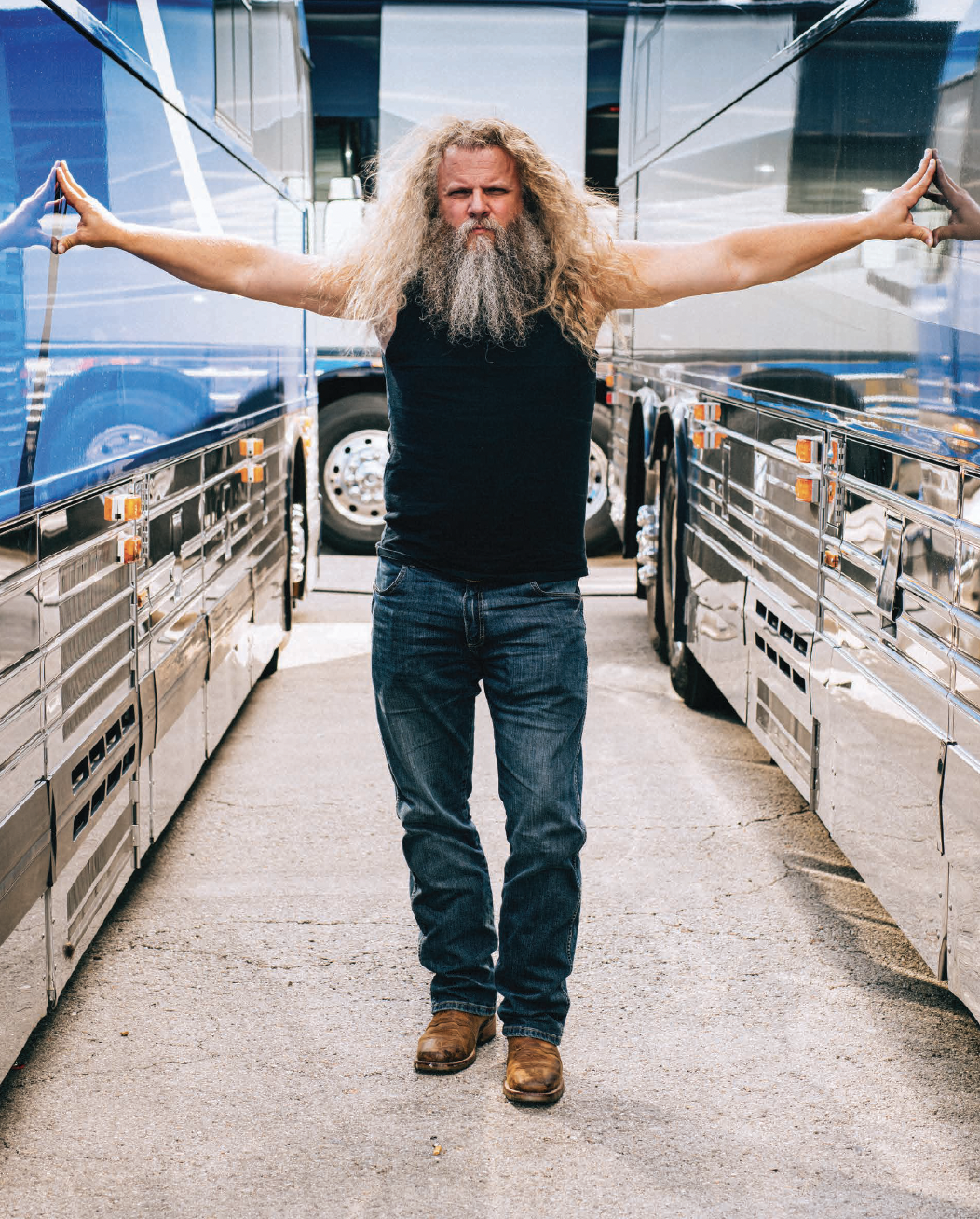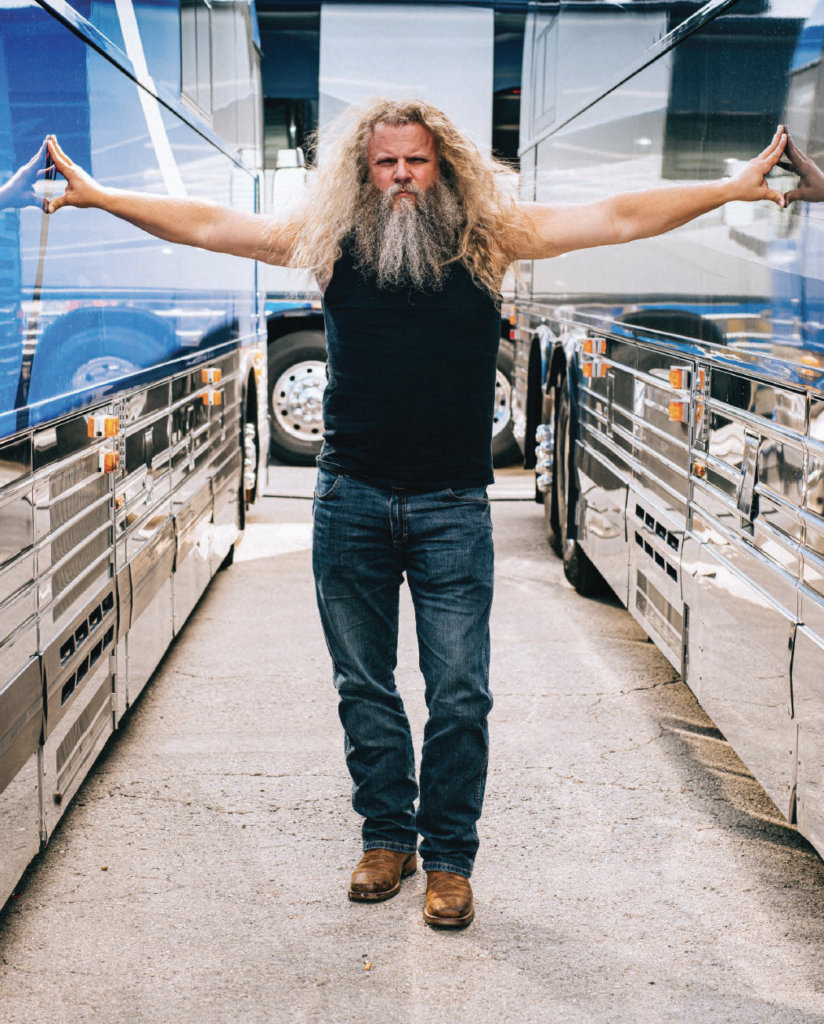Jamey Johnson Interview

Artist Q&A
From our first issue of The Music Insider…

Jamey Johnson
Country Star Jamey Johnson’s A Champion For ‘Hard-Working’ Folks. In the tradition of his forebears, Johnson writes sturdy, no-nonsense songs of his own that practically define the idea of “outlaw” country.
How did the recording of Amazing Grace for formerGeorgia state representative John Lewis gofor you?
“He was a great man and Amazing Grace was his favorite song. He was also a fan of The Blind Boys of Alabama, so we recorded their version of Amazing Grace. I went into the studio with: Kimbo, Robert Randolph, and Angie Primm and we came out with what I felt like was a tribute from all of us that accurately depicts what he meant to us.”
From what I understand, you’ve been writing with Chris Stapleton and you’re planning a tour together?
“Yeah. Chris and I met a long time before we had a record deal or even any success being songwriters. He has been one of my favorite voices. You can hear that voice and the power behind it and you knew exactly who it was. Back then, in 2004 or 2005, he was a real powerhouse writer and singer. We got together and wrote some last year. One of the songs we wrote we had started with Tony Joe Wright called “Saturday Night in New Orleans.”
Chris Stapleton and I got to finish writing that song together and I played it recently at Farm Aid.”
You’re a big advocate for farmers. Do you perform at Farm Aid every year?
“It’s in a different location every year. This year it was entirely online. I believe I got invited in 2008 and I’ve played it every year since. I’m proud that I get to do it. It’s a privilege to support family farmers in that way. Farm Aid does such a wonderful thing for growing awareness of the issues for family farmers. If they lose their land we lose our dinner. We want to make sure that family farmers can continue in their profession because they know what they’re doing best. It takes experience over generations and generations of your family line. You keep passing it down and passing it down. It doesn’t get any better than that. When those guys have to go pull up roots and go do something else because they can’t make a living at what they’re doing, we all miss out.”
Could you talk about some of your influences growing up in the South? Have you always had country influences? Have you had some other influences?
“I think to qualify as an American you have to be a fan of Elvis Presley, Michael Jackson, and Ray Charles. I would also add Willie Nelson, Johnny Cash, and Hank Williams because they were so influential on all American music. So, I definitely got a full ration of all of them growing up. That’s why I sound the way I do. I love George Jones, Alabama, and Lynyrd Skynyrd. I also love my blues influences Muddy Waters and my rock and roll influence Buddy Holly. I would even consider Waylon Jennings rock and roll. He came from the rock and roll world; he had major success in country music and he still had a background inrock. I don’t know man, being a child raised in the 70’s and80’s we listened to good music in general. To be able to grow up in the day of Merle Haggard, Charlie Pride, Kenny Rogers, and Dolly Parton. I cut my teeth on really good music. My respect is there, my heart is there, and it comes out one way.”
When you write a new song or a new record does everyone contribute to the music and lyrics or do they follow your flow?
“Writing tends to be a personal thing with me. I will co-write songs but I typically take my influences from within and I really don’t make a committee decision out of them. I have a lot of great songwriters in my band. We do get together here and there to share songs and ideas, that sort of thing, but I can say that I don’t do enough of that.”
What advice would you give a young musician?
“It happens all of the time. First; a piece of advice that Cowboy,my steel guitar player, gave another steel guitar player.He said to take a couple of weeks off then quit. I like that one because if you take that advice your heart wasn’t in it to begin with. If you want advice, you really don’t need advice.You know exactly what you’re supposed to do next and you follow your instincts. The other piece of advice is one that I’ve been given young people for years about Nashville and country music. In general, you don’t need to be concerned about your place in country music.All you need for success is to never give up. Don’t ever quit and it will be there.”
How much influence does the church or faith have in your music when you’re playing or writing?
“I guess the honest answer is there’s no sense in doing it without the influence of God and faith. That’s what country music is. In fact, I think that’s what all music is regardless of secular nature or religion and gospel. All musicians to feed the soul of man and I believe that’s what God asks us to do for one another. If you’re a songwriter, you’re an equal parts minister and therapist. You write music that tends to people. Regardless of what it’s about or context, itis literally the music that feeds the soul. That’s the purpose of it and you can’t do that without some faith or at least you shouldn’t.”
Tell me about working with Willie Nelson and performing at Farm Aid together.
“The first one that I met in Willie’s camp was Pootie Lock,who was one of Willie’s best friends ever. Pootie and I met at The Exit Inn one night; traded a few jokes and got to know each other. The next thing I know Pootie and I were talking regularly. I got the invite to go play Farm Aid in 2008 and that’s where I got to meet Willie’s family and crew. I got to do a brief tour with Willie soon after that and we started playing poker together. I always knew that I would love Willie but I never knew that Willie would love me back, it just worked out. I couldn’t have handcrafted a better role model. I think that Willie Nelson is one of the most wonderful human beings I’ve ever met and his musical sense is only a small portion of his genius.”